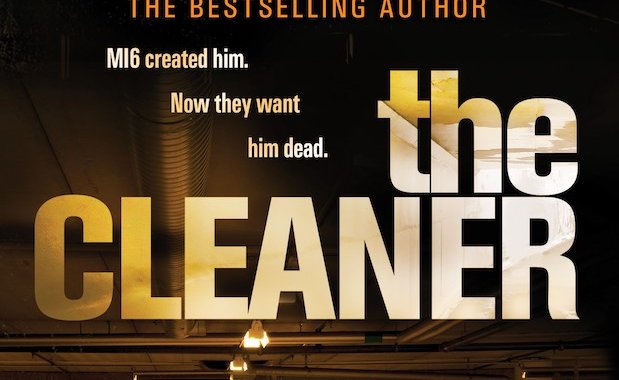A Conversation with Mark Dawson, author of The Cleaner
Who is John Milton? What is his role in MI5?
John Milton is a government assassin who has killed more than 100 people and has increasingly struggled with his conscience. After the assassination of two Iraqi scientists is witnessed by a child (and knowing that he is not allowed to leave witnesses) he decides that he cannot continue and attempts to quit.
This decision is underpinned by his attendance at meetings of Alcoholics Anonymous; he has concluded that he has been drinking to excess in an attempt to ignore the blood on his hands. Step Nine of AA requires addicts to make amends to those they have harmed during their drinking; since many of the people Milton has harmed are dead, he seeks to atone by helping others.
He knows that his attempt to quit will not be accepted and retreats into the East End of London to hide. He decides that he will stay out of the way until he has been able to make a decision about what to do next.
The Cleaner is the first Milton novel but we already see the theme that Milton is someone who wants to protect vulnerable people.
Yes, in The Cleaner Milton rescues a young mother from a suicide attempt on the tracks of the London Underground. She confides in him that she despairs for her teenage son, Elijah, and, with the boy drifting into the ranks of a brutal local gang, she fears she has nothing to live for. Milton decides to help her.
He also meets an ex-soldier at an AA meeting who has set up a boxing club near to his house. The man is aiming to offer local boys and girls something to do other than becoming involved in crime. Milton, who has history as a regimental boxer, offers to help with the club.
He introduces Elijah to boxing and soon discovers that he has a natural talent for it. But, just as things appear to be turning around, the leader of the gang takes an interest in the boy. A misunderstanding between Milton and Elijah leads to an estrangement between them; fearing that all his progress is about to be lost, Milton changes tack – he will remove the temptation of the gang and its leader by more direct means.
Before Milton can do that, however, his old employer sends another agent to bring him back to the fold: dead or alive.
You’ve written two other series both with female protagonists. How is it different to write from that perspective?
I wanted to write a series with a strong female character, and, after her appearance in a Milton book, I knew that Beatrix Rose had more than enough in her past to interest my readers. Writing from a female perspective is a little challenging, but the motivations that drive Beatrix are universal and I quickly found she was very exciting company. After her story came to an end, readers clamoured for more and so I continued, but, this time, following her daughter, Isabella. Both series have their own specific atmospheres and influences: the Milton series reminds me of Daniel Craig era James Bond, while Beatrix and Isabella are more like the Jason Bourne films. The series work very well as a pair.
You were previously a lawyer. How did you get into writing?
I always wanted to be a writer. I was a lawyer by trade, and then had a job I loved with the British Board of Film Classification (effectively watching movies and getting paid for it). I was there for 10 years—it was a great job with great people and no one ever left.
That said, I was always tapping away at various writing projects. I was first published by Macmillan in 1999/2000, but the books were nothing special and they didn’t do well.
I self-published a third book direct to Kindle in 2012 and the first Milton book was published in 2014. I immediately saw interest from readers and doubled down on writing more in the series.
I spoke to my wife at the start of 2014 when I was earning about the same from my job as I was from my writing. She was on maternity leave, so I couldn’t afford to be frivolous. We agreed that if I could continue to maintain that income level for twelve months, it would be an indicator of longevity and I could quit and write full-time.
As 2014 progressed, I doubled, then tripled my income from writing. By November 2014, when I eventually left my job, I was making mid-five figures a month from writing. I was earning almost what I made in a year from my job in one month. I’ve been full time ever since, and it’s only gotten better.
Now you teach other people how to make a living publishing their work?
I produced a series of technical courses on producing and advertising ebooks and have taught more than 15,000 authors how to build a career in publishing. We have a weekly podcast that is approaching 2.5m listeners and I travel the world to speak at conferences and shows. It’s been quite a ride!
Learn more about Mark Dawson at www.MarkJDawson.com


